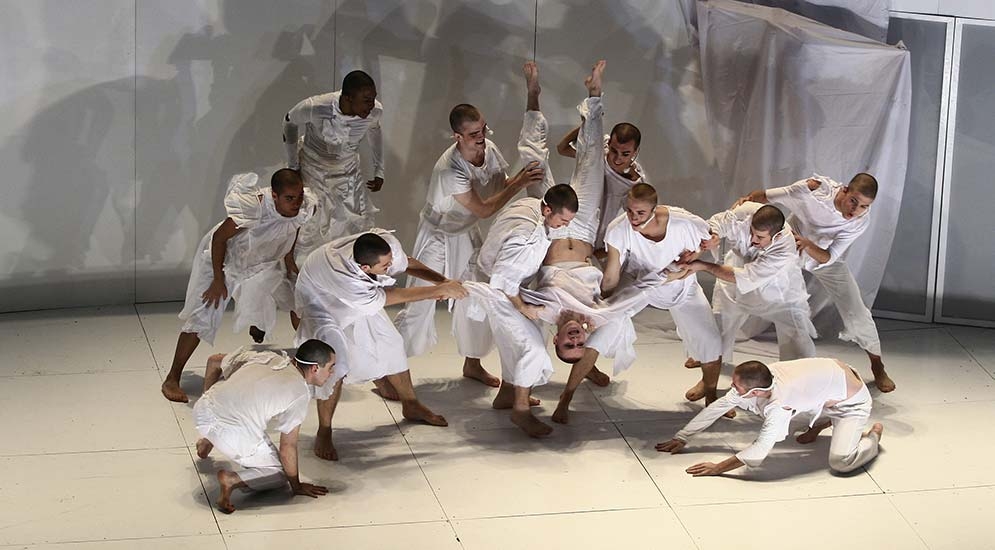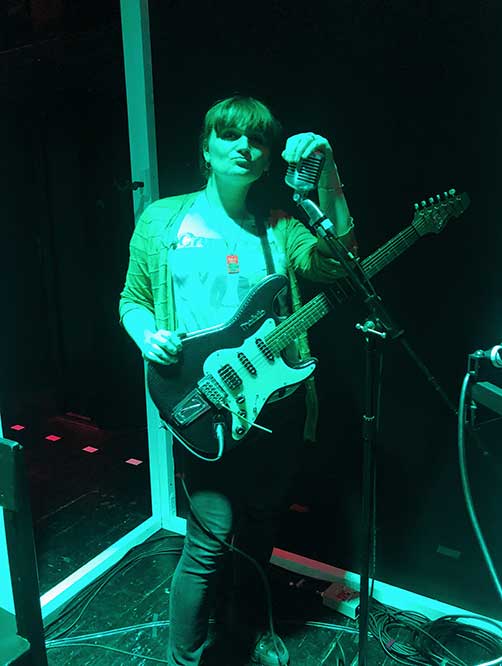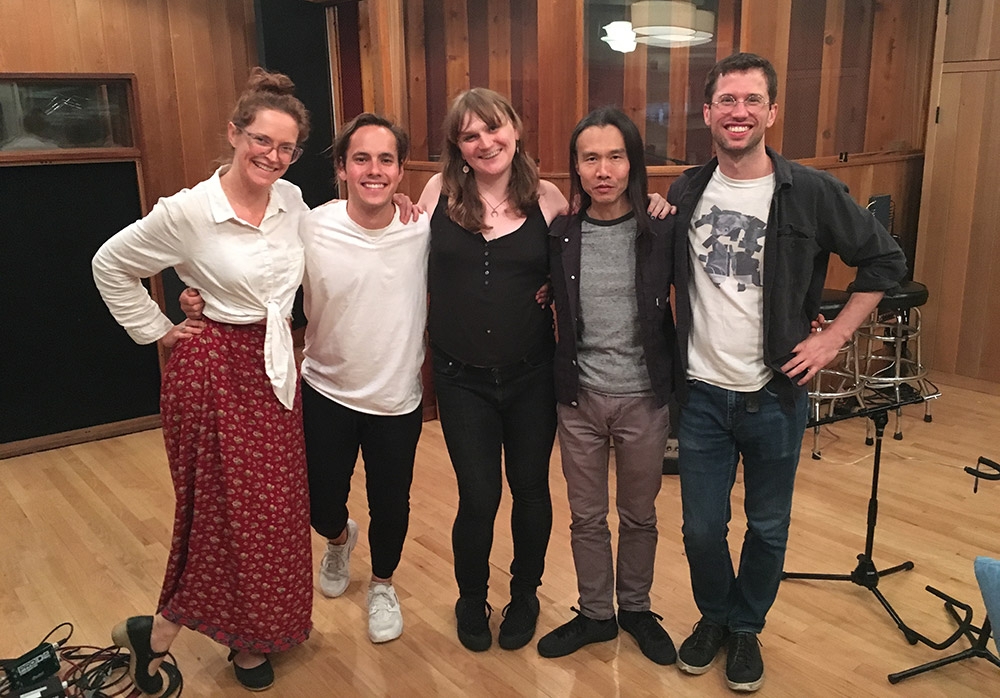When you hit the ground running straight out of school, what did that look like? Were you focusing on one specific area or feeling things out?
I went to auditions for a while, freelancing with an agent—and hated it. I hated being judged that way, I sucked at memorizing things at the last second, I’d get super nervous and freak out in front of important people—and so my focus landed on devising. I made friends with directors who were interested in either reinterpreting work or creating new stuff. That, and solo-style devising. I developed a character named Minq Vaadka—it was like punk burlesque, David Bowie meets Hedwig. The way I got myself noticed, both in my peer group and beyond, was by generating a vehicle for myself and using it to showcase my songwriting—playing this really extreme, crazy character with improv skills, interacting with the audience. I feel if there’s something you're interested in, the best thing to do is to jump in with both feet—you may be terrified—but it’s like forcing yourself to jump into the deep end [of a pool] and figure it out. Figuring out how to swim is such an invaluable skill.
How do you balance all the roles and opportunities you’ve had?
I think my career began as an actor who happened to be competent with music. In the past decade or so, those two things flip-flopped. Now I consider myself a musician in the theatre who happens to be a competent actor. I don’t like the typical interpretation of the concept “jack of all trades, master of none”—people say it as a put-down. I’m actually very proud to be a “jack of all trades, master of none,” in that we live in a collaborative art form. I want to be competent in as many aspects of theatre making as possible—and I don’t think we should be afraid to lose ourselves down rabbit holes.
After experiencing and exploring all of your various roles, is there any advice you think is important for students interested in your career path?
The best piece of advice anybody ever gave me was that this career path is about duration—it’s survival of the patient. I’m 11 years into my professional career, and it’s taken that long to slowly develop my connections and skills, and to do enough shows that led to visibility and people actually giving a shit. And as other artists drop out, the best thing you can do is be the last person standing.
As you were finding your interests and jumping into new opportunities, were there other lessons you found invaluable?
Not once in my 11-year professional career have I auditioned into a part. It was actually from making connections with people and trying to generate friendly, conflict-free experiences. Word of mouth is what moved me along. And I owe that to what I learned at NYU, which was: be proactive! It doesn’t necessarily mean audition, it means being the last person in the room at the end of a rehearsal and chatting up the director or making friends. I think if I’d just sat back and let college kind of happen to me, I wouldn’t have developed these skills. In fact, I might have been one of those people who do it for six years and then say, “I’m done. I’m out.”


